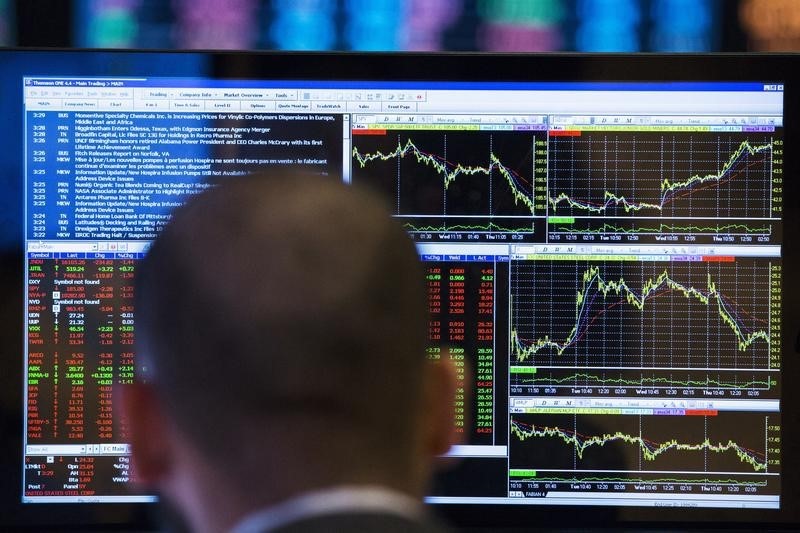UBS cuts Japanese stocks to sell, prefers Europe and UK
Investing.com -- UBS has recently taken a step by downgrading Japanese equities to a "sell" rating, signaling a shift in investment strategy towards Europe and the UK.
Despite structural improvements within Japan, UBS analysts believe that several cyclical challenges render Japanese stocks less appealing compared to their European and British counterparts.
UBS's decision to downgrade Japanese stocks reflects a confluence of factors that present significant risks to the Japanese market, making it less attractive in the current global economic environment.
Japan's economy is characterized by high operational leverage, which means its corporate earnings are particularly sensitive to changes in global economic conditions.
As global Purchasing Managers' Indexes (PMIs) begin to peak, signaling a potential slowdown in manufacturing output, Japan's high leverage makes its markets more vulnerable to underperformance during a downturn.
This heightened sensitivity is particularly concerning given the global economic landscape, where growth momentum appears to be waning.
Adding to these concerns is Japan's substantial exposure to China. Japan's exports to China account for 2.9% of its GDP—significantly higher than Europe's exposure.
With China's economy currently facing a range of challenges, including the risk of deflation and sluggish growth, Japan's heavy reliance on Chinese demand poses a serious risk to its economic stability.
Any further deterioration in China’s economic conditions could have outsized negative effects on Japan’s GDP and corporate earnings.
Furthermore, the anticipated trajectory of Treasury Inflation-Protected Securities (TIPS) yields is another factor weighing on Japan's prospects. “For year-end 2025, UBS forecasts 1.4% 10-year TIPS (we agree) and Japan is the worst performing region when the TIPS yield falls,” the analysts said.
This relationship underscores the vulnerability of Japan’s market in a global environment where inflation-adjusted yields are on a downward trend.
Currency dynamics and interest rate expectations further compound these challenges. UBS projects that the Bank of Japan (BoJ) will raise interest rates to 1% by mid-2025, which is above current market expectations. A rate hike of this magnitude is likely to strengthen the yen, which in turn would hurt Japanese exporters by making their products more expensive in global markets.
Historically, a 10% appreciation in the yen has been associated with a similar level of underperformance in Japanese equities when compared to global markets.
In addition to these cyclical headwinds, Japan’s corporate governance, although improving, still lags behind that of Europe and the UK.
Japanese companies are not canceling share buybacks at the same rate as their European counterparts, which could dilute equity and reduce shareholder value over time.
Moreover, while Japanese stocks might appear cheap on the surface, this valuation advantage is misleading.
Much of the perceived value comes from domestic-oriented stocks, which are undervalued, while growth-oriented stocks—favored by foreign investors—are not as attractively priced when compared to their global peers.
In contrast to the challenges facing Japan, UBS identifies several compelling reasons to favor European and UK equities. The lower operational leverage in these regions makes their markets less vulnerable to global economic slowdowns, providing a more stable investment environment.
Unlike Japan, Europe and the UK have less economic exposure to China, which reduces the risks associated with the ongoing challenges in the Chinese economy.
Monetary policy also plays a critical role in UBS’s preference for Europe and the UK. UBS expects interest rates in these regions to be cut by the end of 2025, which is anticipated to boost GDP growth by 1%.
This is in stark contrast to Japan, where rising interest rates could stifle economic growth and corporate profitability.
Moreover, European equities have shown better earnings revisions relative to Japan, indicating stronger economic fundamentals and corporate performance.
Investors in European stocks also benefit from higher buyback yields and total yields (including dividends) than those available in Japan.
Additionally, European equities are trading at more favorable price-to-earnings ratios, further enhancing their appeal.
The outlook for currency movements also favors Europe and the UK. UBS forecasts that the yen will appreciate against the euro by 10% by the end of 2025.
This expected currency shift is likely to erode the competitiveness of Japanese exporters, particularly in key sectors like automobiles and capital goods, where they compete directly with European firms.
Source: Investing.com
